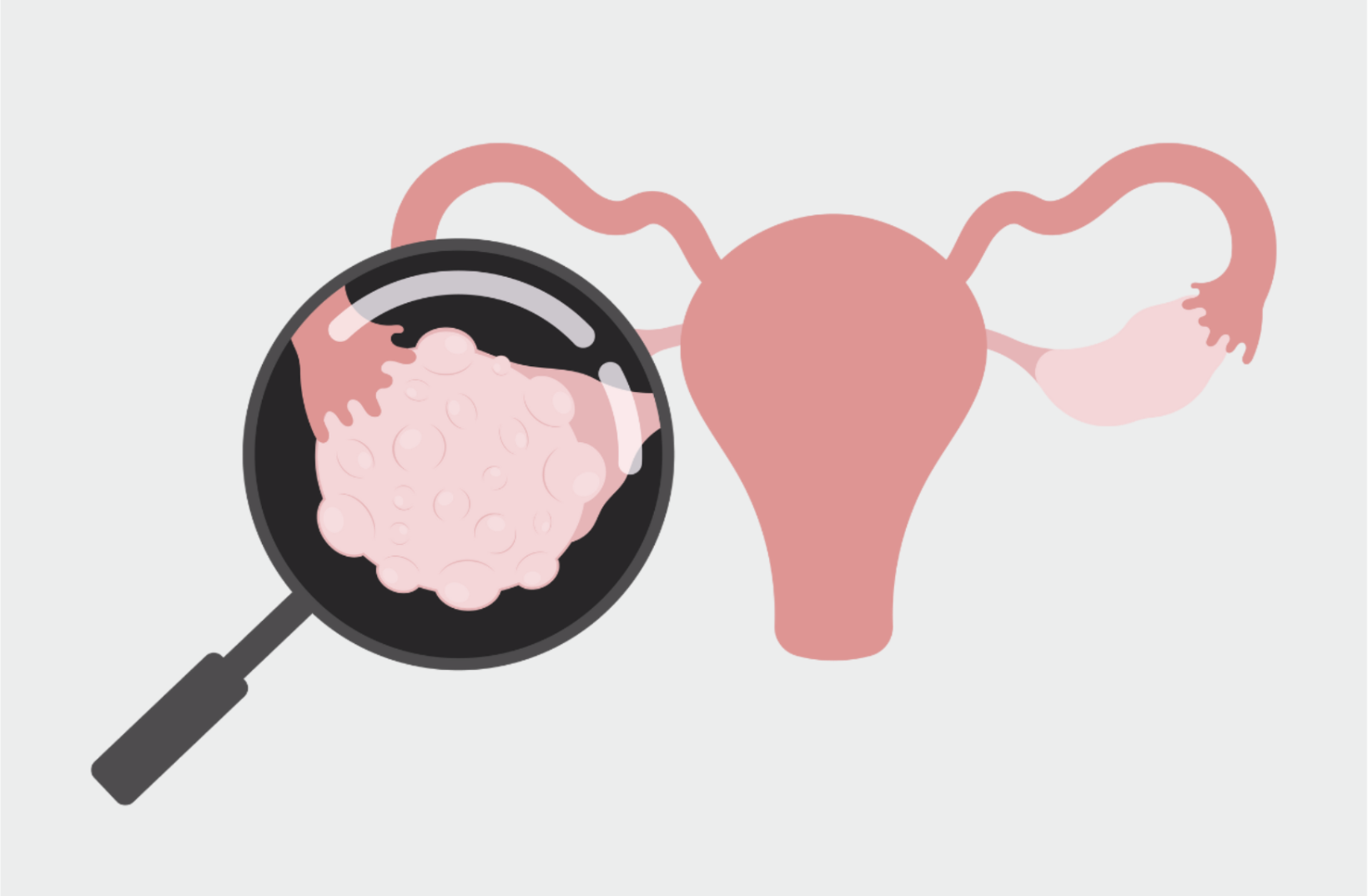

When you're navigating a chronic autoimmune condition like lupus, rheumatoid arthritis, or Hashimoto’s thyroiditis, your health may feel unpredictable. Amid treatment plans and flare-ups, it’s natural to wonder: Can my immune system affect my fertility? And if so, what options do I have to preserve my ability to grow a family in the future?
Egg freezing is an empowering step for anyone, and if you’re just beginning the process, there are lots of considerations to think about. But for people living with autoimmune disorders, unique factors need to be taken into account. In this article, we’ll walk through how autoimmune diseases may impact fertility, why egg freezing timing matters for those affected by autoimmune disease, and what to know before freezing your eggs if you have one of these conditions.
What are autoimmune disorders?
Autoimmune diseases occur when the body’s immune system mistakenly attacks its own healthy tissues, leading to chronic inflammation and tissue damage. There are over 80 known autoimmune diseases, which can affect nearly every system in the body, including joints, skin, nerves, blood vessels, and internal organs.
Some of the most common autoimmune conditions include:
- Systemic lupus erythematosus (SLE or lupus)
- Rheumatoid arthritis (RA)
- Multiple sclerosis (MS)
- Hashimoto’s thyroiditis (hypothyroidism)
- Graves' disease (hyperthyroidism)
- Type 1 diabetes
- Inflammatory bowel disease (Crohn’s, ulcerative colitis)
Unfortunately, these conditions disproportionately affect women, especially during their reproductive years. In fact, according to the CDC, nearly 80% of people diagnosed with autoimmune disorders are women.
Can autoimmune disease affect fertility?
Many autoimmune conditions or their treatments can also affect fertility. A 2019 Best Practice & Research Clinical Endocrinology & Metabolism study found that women with autoimmune diseases such as lupus and RA had increased risks of infertility or “subfertility.” That being said, there may be various potential causes of this, direct and indirect, including physical conditions, age, and increased rates of antiphospholipid antibodies (aPL).
Autoimmune diseases (or their treatments) have been shown to impact fertility in a few ways:
- Impact on ovarian reserve and menstrual cycles
Some autoimmune diseases can cause direct damage to the ovaries. According to the World Journal of Experimental Medicine, in conditions like lupus or autoimmune oophoritis, the body may mistakenly target ovarian tissue, leading to reduced ovarian reserve or premature ovarian insufficiency (POI).
Medications also play a significant role. Cyclophosphamide, a chemotherapy agent often used in lupus and vasculitis, is known to be gonadotoxic, meaning it can damage the ovaries. Glucocorticoids and immunosuppressants can also impact hormone levels and cycle regularity as well.
- Inflammation and immune dysfunction
Even without direct ovarian damage, chronic inflammation and dysregulated immune activity can interfere with ovulation, fertilization, and implantation. Gynecology and Obstetrics Clinical Medicine notes that elevated cytokines and autoimmune antibodies may impair follicular development or increase the risk of miscarriage.
- Increased miscarriage risk
According to Nature Reviews Endocrinology, autoimmune conditions (along with other abnormalities in the female immune system) can interfere with reproductive success at various levels. Conditions involving the thyroid, as well as antiphospholipid syndrome and the presence of antinuclear or antithyroid antibodies have been linked to increased miscarriage risk.
The publication also notes that impaired maternal immune tolerance and premature ovarian insufficiency — which, as mentioned above, can be caused by autoimmune conditions — can further compromise pregnancy outcomes. Because of all of this, early identification of autoimmune conditions is incredibly important for women who would like to have children down the line.
Why egg freezing matters for people with autoimmune disease
If you have already been diagnosed with an autoimmune disorder, you have options. Freezing your eggs can provide an important degree of future flexibility.
Benefits of egg freezing
- Preserve fertility before starting treatments like chemotherapy or immunosuppressants
- Bank eggs during periods of remission while your health is stable
- Protect against future fertility decline, especially if your condition may lead to premature ovarian failure
Egg freezing is most effective when done earlier in life — ideally before the age of 35 — for anyone, with or without autoimmune disease. However, according to Advances in Reproductive Sciences, age is a particularly important consideration for those with lupus and other conditions known to accelerate ovarian aging.
Egg freezing success rates
To understand the impact of autoimmune conditions upon egg freezing success rates, let’s first establish what constitutes “success.” When it comes to egg freezing, the goal is a combination of the quantity of mature eggs retrieved, along with quality (which unfortunately cannot be determined until a fertilization attempt through IVF).
Egg freezing for those with lupus
In one retrospective cohort study examining women with systemic lupus erythematosus (SLE) undergoing egg freezing, the incidence of Diminished Ovarian Reserve (DOR) for those with SLE were much higher than for those without (42.2% vs. 10.8%, respectively). While maturation rates were similar between the groups, those with SLE also made fewer viable embryos (76.6% vs. 86%), even when freezing their eggs while in remission.
Egg freezing for those with rheumatoid arthritis (RA)
A 2018 study in The Journal of Rheumatology found that women with RA did not have statistically significantly lower AMH levels, menstruation regularity, or ovulation rates than age-matched controls. If freezing their eggs, RA patients should expect modest reductions in ovarian reserve, but stimulation protocols can likely proceed without major adjustment. This is especially true if the patient is in remission.
Egg freezing for those with Hashimoto’s Thyroiditis (and thyroid autoimmunity)
A 2022 study featured in Clinical Thyroidology for the Public found that women with TSH in the upper-normal range had lower AMH levels and fewer ovarian follicles than those with lower-normal TSH. Diminished ovarian reserve (DOR) occurred in 5.1 of high-normal TSH autoimmunity cases vs. 3.5% in lower normal.
Similarly, a BMC Women’s Health study demonstrated a negative correlation between TSH levels and AMH, implying that even slight thyroid dysfunction could lower ovarian reserve.
What about egg donation?
While the process of ovarian stimulation and retrieval is the same for donation as it is for freezing, eligibility for egg donation for individuals with autoimmune disorders depends on the specific condition and its severity.
Most clinics disqualify potential egg donors with lupus, multiple sclerosis, and Graves’ disease (hyperthyroidism), because these conditions may have a genetic component or increase health risks during ovarian stimulation. However, Hashimoto’s thyroiditis, a common cause of hypothyroidism, may be allowed if it’s well-managed and mild. Please reach out to our team, and we can help you understand if you qualify for egg donation.
Key considerations before freezing your eggs
If you’re considering egg freezing while managing an autoimmune disorder, planning ahead is key:
Timing around flares
Ovarian stimulation requires hormonal medications, which may not be safe during disease flares. It’s best to pursue fertility preservation during a period of remission or low disease activity.
Specialist involvement
Work with a reproductive endocrinologist who has experience treating patients with autoimmune conditions. Coordination with your rheumatologist or primary specialist ensures medications are adjusted appropriately and risks are minimized.
Tailored medication protocols
You may require modified stimulation protocols or extra monitoring during the egg retrieval process. For instance, those with lupus may need to avoid certain estrogen-based protocols to reduce clotting risks.
Emotional and practical considerations
Living with a chronic illness while making fertility decisions can be emotionally complex. You may experience *all* the things: anxiety about the future, grief over limited control of your body, pressure to “act now” before health declines…the list goes on. You're not alone—and your feelings are valid.
Mental health support (from a therapist, support group, or community like ours) can be invaluable. Don’t hesitate to seek resources to help process your journey.
On the practical side, you’ll also need to consider financial implications. Egg freezing costs can be high, but some insurance plans may cover fertility preservation when tied to medically necessary treatments (e.g., chemotherapy).
And opportunities like the Cofertility Split program offer ways to freeze your eggs for free when you donate half to another family (note: eligibility will depend on medical history).
How Cofertility can help
At Cofertility, we’re committed to making egg freezing more accessible, affordable, and inclusive — and this extends to those managing complex health conditions.
Whether you’re exploring egg freezing before starting immunosuppressants, wondering if lupus affects fertility, or curious about your eligibility to donate, we’re here for you. Our platform:
- Offers personalized support through every step of the process
- Helps match you with the right fertility clinic for your needs
- Provides transparent guidance around eligibility and medical requirements
We believe fertility care should reflect the diversity of women’s lived experiences, including those with chronic illness.
Final thoughts
If you're living with an autoimmune disease, your fertility may feel uncertain, but it doesn't have to be out of your hands. With the right team and a clear plan, egg freezing can offer hope, agency, and peace of mind.
Want to learn more about your options? Reach out to us. We’re here to walk this journey with you.
Sources:
- National Institute of Environmental Health Sciences. (n.d.). Autoimmune diseases. NIEHS. https://www.niehs.nih.gov/health/topics/conditions/autoimmune
- Autoimmune Diseases Coordinating Committee. (2004). Progress in autoimmune diseases research. Emerging Infectious Diseases, 10(11). CDC. https://wwwnc.cdc.gov/eid/article/10/11/04-0367_article
- Falconer, H., et al. (2019). Fertility preservation and ovarian function in women with autoimmune diseases. PubMed. https://pubmed.ncbi.nlm.nih.gov/31837981/
- Komatsu, M., et al. (2005). Autoimmune oophoritis and infertility: Implications for premature ovarian insufficiency. PMC. https://www.ncbi.nlm.nih.gov/pmc/articles/PMC1121274/
- Sammaritano, L. R. (2016). Fertility preservation in women with autoimmune disease. BMJ Case Reports. https://gocm.bmj.com/content/4/1/e000011
- Somers, E. C., et al. (2013). Autoimmune diseases and reproductive health: Impact and risks. PubMed. https://pubmed.ncbi.nlm.nih.gov/24189508/
- Elshafey, E. M. (2015). Systemic lupus erythematosus and ovarian dysfunction. Scientific Research Publishing. https://www.scirp.org/journal/paperinformation?paperid=63755
- Zhao, Y., et al. (2023). Immune imbalance in infertility: Mechanisms and implications. Frontiers in Immunology. https://www.frontiersin.org/articles/10.3389/fimmu.2023.1132045/full
- Wallenius, M., et al. (2018). Rheumatoid arthritis and ovarian reserve. The Journal of Rheumatology. https://www.jrheum.org/content/early/2018/11/12/jrheum.180176
- American Thyroid Association. (2022). Thyroid hormone levels and ovarian reserve. Clinical Thyroidology for the Public, 15(10), 9–10. https://www.thyroid.org/patient-thyroid-information/ct-for-patients/october-2022/vol-15-issue-10-p-9-10
- Meng, L., et al. (2023). TSH and AMH levels in women with autoimmune thyroiditis. BMC Women’s Health. https://bmcwomenshealth.biomedcentral.com/articles/10.1186/s12905-023-02725-1











